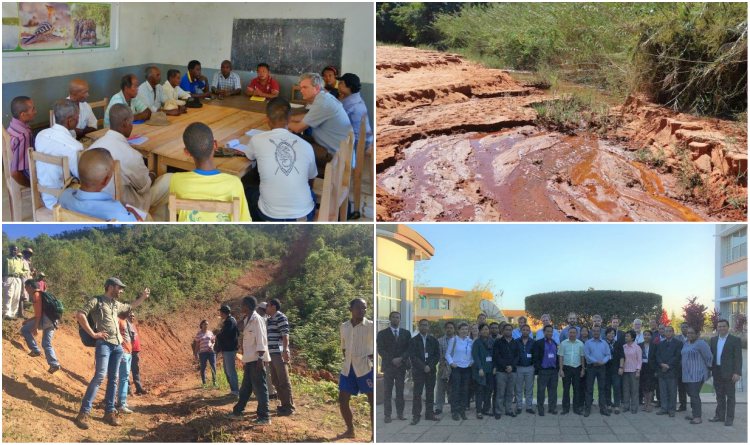Deforestation, population growth, and climate change are only some of the challenges to sustainable landscape management in Madagascar. Severe impacts of land degradation on crop production, water availability and biodiversity are already observed and expected to exacerbate in the future. To address these challenges, the World Bank is supporting the PADAP project, which is based on an integrated approach to landscape management that aims both at promoting economic value, while preserving the critical ecosystem services necessary for sustaining those activities.
From May 6 to May 14, a scoping mission to Madagascar was organized as the start of the project Land Use Planning for Enhanced Resilience of Landscapes in Madagascar (LAUREL), a technical assistance to the PADAP program. A team consisting of staff from Wageningen University, ISRIC, RIKS, WWF Madagascar and FutureWater visited Madagascar to assess land degradation issues and conduct a first inventory of land degradation causes and impacts, relevant stakeholders, and tool and data availability.
The mission schedule combined field visits, discussions with local stakeholders, an interactive workshop with a broad audience, and a multitude of bilateral meetings with Ministries, scientists and NGOs involved in land use planning in Madagascar.
The findings of the mission will be incorporated in two approach papers that will support the further trajectory toward the development of a prototype platform for simulating, evaluating, and re-orienting as appropriate, land use and land use change processes.


